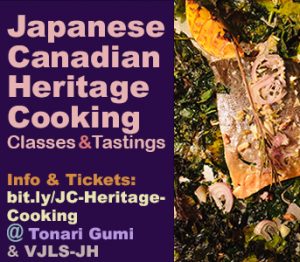President’s Report

A QUESTION OF IDENTITY
My first interest in Japan was Zen Buddhism. I read Essays on Zen Buddhism by Daisetsu Suzuki in 1969. It was the beginning of a love of Japan that continues to this day. People sometimes tell me I seem Japanese in my ways. If this is true, it may be tied to that age-old question of which came first, the chicken or the egg. I might have had a predisposition to things Japanese. My mother who was born in Scotland was very much like a Japanese mother. I was botchan at home. This may be why I was so receptive to Japanese culture from 1969 on. But I have never consciously attempted to act or be Japanese. When I first went to Japan to teach English in 1972, I would hear about foreigners whose aim was to be thought of as aome Nihonjin (“blue-eyed Japanese”). This is not an aim I have ever had.
I taught English in Tokyo from 1972 to 1976. I went to Japan wanting to experience as much of Japan as I could. I welcomed every opportunity to spend time with Japanese and to experience Japanese culture. I went to Kabuki, Noh and Bunraku performances. I visited Japanese art galleries and museums. I went to see Japanese movies on my own with hardly any Japanese in attendance. I became a Sumo fan and went to see Sumo tournaments at Ryogoku. I went on hikes in the Tokyo area with Japanese friends. I wore yukata to dance in Bon Odori. I spent many evenings with night schools students eating, drinking and chatting at akachochin in Kanda. I raced home from the akachochin to make it into the Sento just before closing every night. My late night hadaka tsukiai public bath friends were “Sushi Haru” (I never learned his real name), his apprentice and Mr. Suzuki who was the local drycleaner. I also married a Japanese lady from Saitama. Ours was an “international marriage.”
My wife and I returned to Vancouver in 1976. My family and friends were delighted with my Japanese wife. I had returned to Vancouver to begin graduate studies in Modern Japanese Literature at UBC. My advisor Professor Kinya Tsuruta encouraged me to apply for a two-year Mombusho scholarship to do research studies in Japan. I did as he suggested. I fortunately received the scholarship. I entered Hiroshima University as a research student in 1978. The two years would become among the happiest years of my life. I enjoyed everything about my time at Hiroshima University. My advisor was Profesoor Hideo Isogai. He was a wonderful teacher and scholar. He was kind and helpful. He also changed my opinion about Dazai Osamu. I had not liked the famous novels written by Dazai when I was at UBC. I thought they were too nihilistic. But Professor Isogai told me my personality reminded him of Dazai. I instantly took a more positive interest in Dazai. A farewell gift from Professor Isogai to me was Dazai’s Tsugaru. So Professor Isogai saw in me qualities of a Japanese novelist. A drunken Japanese at an izakaya in Hiroshima saw no such qualities in me. He was angry with me. He told me he despised me because of the atomic bombing of Hiroshima. I foolishly attempted to reason with him. I first said that I was only six months old when the bomb was dropped. Further, I told him that I wasn’t American. I was Canadian. None of this mattered to him. He despised me nonetheless.
My first child was born in Hiroshima. Two daughters were born in Vancouver. A recent popular term that might be applied to my children is hapa. Is it possible to literally think of my children as Japanese Canadian? If not, then what is a Japanese Canadian? It may be that most people think Japanese Canadians are people born in Canada whose ethnicity is clearly Japanese, in particular, nisei, sansei and beyond. I attended the National Association of Japanese Canadians Annual General Meeting in Kamloops last year. The AGM affirmed that any Canadian whose ethnicity can even in the smallest way be seen as Japanese is welcome to call himself or herself Japanese Canadian. They went so far as to suggest all those with an affinity for Japanese Canadians and their cultural and historical heritage are also free to call themselves Japanese Canadians. Please call me a Japanese Canadian.
Gary Matson, President, GVJCCA








